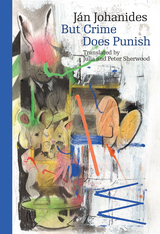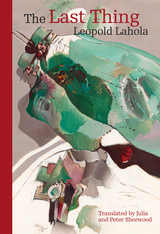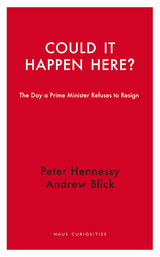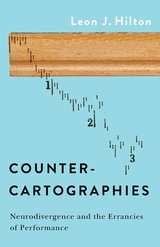6 books about Sherwood, Julia

The Bonnet
Katari´na Kucbelova´
Seagull Books, 2024
A beautifully written and moving story about the power of tradition and the importance of women’s stories.
The Bonnet, the first work of prose by Slovak poet Katarína Kucbelová, defies easy pigeonholing: both political and personal, it is a work of literary reportage, a quest for one’s roots, a critical exploration of folk art and, not least, social commentary on the coexistence of the Slovak majority and the Roma minority, offering a nuanced and sympathetic look at the lives of Roma people in Slovakia, and raising important questions about the nature of prejudice and discrimination. Over two years, the author made regular visits to the remote village of Šumiac in Slovakia to learn the dying craft of bonnet making from one of its last practitioners, Il’ka, an elderly local woman who in the process became her mentor in more ways than one. Through the parallel stories of Il’ka and the narrator’s grandmother, The Bonnet also offers a subtly feminist reading of the position of women in rural Europe from the early twentieth century to the present day.
The Bonnet, the first work of prose by Slovak poet Katarína Kucbelová, defies easy pigeonholing: both political and personal, it is a work of literary reportage, a quest for one’s roots, a critical exploration of folk art and, not least, social commentary on the coexistence of the Slovak majority and the Roma minority, offering a nuanced and sympathetic look at the lives of Roma people in Slovakia, and raising important questions about the nature of prejudice and discrimination. Over two years, the author made regular visits to the remote village of Šumiac in Slovakia to learn the dying craft of bonnet making from one of its last practitioners, Il’ka, an elderly local woman who in the process became her mentor in more ways than one. Through the parallel stories of Il’ka and the narrator’s grandmother, The Bonnet also offers a subtly feminist reading of the position of women in rural Europe from the early twentieth century to the present day.
[more]

But Crime Does Punish
Ján Johanides
Karolinum Press, 2022
A haunting novel of post-Soviet Slovakia, centering on an enigmatic one-sided conversation.
“So, as you see, I am familiar with the case. However, we can’t discuss it unless you learn more about some other court cases, so that you can compare your father’s trial with other, more baffling cases, and see it in the context of the madness that reigned at the time.”
Ján Johanides’ riveting Slovak novel immediately thrusts you into the midst of a bewildering second-person dialogue, bestowing the reader with the role of a silent partner in a one-sided conversation with a mysterious archivist. As the story unfurls piece by piece, it becomes clear that the archivist, who can’t seem to stay on topic, has both a tragic history and the key to unlocking your family’s darkest secret, a secret that may or may not involve the Czechoslovak secret police, American and Soviet intelligence, Israeli politics, and a tire full of dollars.
Set after the fall of the Soviet Union and the dissolution of Czechoslovakia, But Crimes Do Punish is awash with paranoia, revealing how the madness of the Communist era continues to bleed into the instability of the present. Written in 1995, this haunting novel—the first work of Slovak fiction published by Karolinum Press—evokes the spirit of John le Carré and the style of Carlos Fuentes while illuminating issues that still plague post-Communist Europe.
“So, as you see, I am familiar with the case. However, we can’t discuss it unless you learn more about some other court cases, so that you can compare your father’s trial with other, more baffling cases, and see it in the context of the madness that reigned at the time.”
Ján Johanides’ riveting Slovak novel immediately thrusts you into the midst of a bewildering second-person dialogue, bestowing the reader with the role of a silent partner in a one-sided conversation with a mysterious archivist. As the story unfurls piece by piece, it becomes clear that the archivist, who can’t seem to stay on topic, has both a tragic history and the key to unlocking your family’s darkest secret, a secret that may or may not involve the Czechoslovak secret police, American and Soviet intelligence, Israeli politics, and a tire full of dollars.
Set after the fall of the Soviet Union and the dissolution of Czechoslovakia, But Crimes Do Punish is awash with paranoia, revealing how the madness of the Communist era continues to bleed into the instability of the present. Written in 1995, this haunting novel—the first work of Slovak fiction published by Karolinum Press—evokes the spirit of John le Carré and the style of Carlos Fuentes while illuminating issues that still plague post-Communist Europe.
[more]

The Healer
Marek Vadas
Seagull Books, 2023
Traditional African narrative forms combined with European modernism.
The stories comprising The Healer, Marek Vadas’s first collection, which was originally published in 2006, are steeped in the culture, rituals, and traditions of Africa, blurring the boundaries between dream and reality and peopled with characters whose gender, shape, skin color or even memories may change at a stroke. Nevertheless, Vadas refuses to exoticize this world, and many of the stories, told in pared-down language, blend mythical elements with realistic depictions of harsh living conditions, economic deprivation, and colonial oppression. The narratives unfold from the perspective of their protagonists—children (often orphaned), and men struggling to make ends meet and trying in vain to resist the allure of strong women endowed with magic powers. As a Slovak writer focusing on the African continent, Vadas is a rare voice that helps to build bridges between very different cultures, and now his writing is introduced to the global anglophone readership.
The stories comprising The Healer, Marek Vadas’s first collection, which was originally published in 2006, are steeped in the culture, rituals, and traditions of Africa, blurring the boundaries between dream and reality and peopled with characters whose gender, shape, skin color or even memories may change at a stroke. Nevertheless, Vadas refuses to exoticize this world, and many of the stories, told in pared-down language, blend mythical elements with realistic depictions of harsh living conditions, economic deprivation, and colonial oppression. The narratives unfold from the perspective of their protagonists—children (often orphaned), and men struggling to make ends meet and trying in vain to resist the allure of strong women endowed with magic powers. As a Slovak writer focusing on the African continent, Vadas is a rare voice that helps to build bridges between very different cultures, and now his writing is introduced to the global anglophone readership.
[more]

The Last Thing
Leopold Lahola
Karolinum Press, 2025
An English translation of Slovak Jewish writer Leopold Lahola’s collection of short stories that face the atrocities and paradoxes of World War II.
Slovak Jewish writer Leopold Lahola was able to escape deportation to a concentration camp and fight in the resistance only to find himself forced into exile by the postwar communist regime. He emerged from obscurity during the brief thaw of the Prague Spring, when he was able to return to his homeland and thrive as a playwright and film director. It was also in 1968 that his short story collection The Last Thing appeared in Slovakia. The collection’s title proved sadly prophetic with the author suffering a fatal heart attack in January 1968, just before his 50th birthday and as his short stories finally appeared in book form.
The nine stories which make up The Last Thing range from the prewar rise of fascism and its dangers for the Jewish community through the concentration camps and the partisan fight against the Germans, concluding in the devastating awareness of all that had been lost and destroyed in the war. Lahola is a master of writing outside of conventional tropes, exploring moral ambivalences where others work within the comforts of good versus evil. He punctures the standard historical image of the partisan fighters by depicting their heroism along with their cruelty and pettiness while also showing how often bravery and madness, kindness and stupidity can coexist. Lahola has written a World War II story collection whose translation will offer not only a compelling read but starkly new perspectives on the tragedy and grandeur of that momentous time in history.
Slovak Jewish writer Leopold Lahola was able to escape deportation to a concentration camp and fight in the resistance only to find himself forced into exile by the postwar communist regime. He emerged from obscurity during the brief thaw of the Prague Spring, when he was able to return to his homeland and thrive as a playwright and film director. It was also in 1968 that his short story collection The Last Thing appeared in Slovakia. The collection’s title proved sadly prophetic with the author suffering a fatal heart attack in January 1968, just before his 50th birthday and as his short stories finally appeared in book form.
The nine stories which make up The Last Thing range from the prewar rise of fascism and its dangers for the Jewish community through the concentration camps and the partisan fight against the Germans, concluding in the devastating awareness of all that had been lost and destroyed in the war. Lahola is a master of writing outside of conventional tropes, exploring moral ambivalences where others work within the comforts of good versus evil. He punctures the standard historical image of the partisan fighters by depicting their heroism along with their cruelty and pettiness while also showing how often bravery and madness, kindness and stupidity can coexist. Lahola has written a World War II story collection whose translation will offer not only a compelling read but starkly new perspectives on the tragedy and grandeur of that momentous time in history.
[more]

Seven Days to the Funeral
Ján Rozner
Karolinum Press, 2024
A dissident's deeply personal and unflinching view of Soviet oppression in Czechoslovakia in the wake of the 1968 invasion.
Seven Days to the Funeral is the fictionalized memoir of Ján Rozner, a leading Slovak journalist, critic, dramaturg, and translator. Rozner and his wife Zora Jesenská were champions of the Prague Spring and were blacklisted after the Soviet-led invasion of Czechoslovakia in 1968. When Jesenská died in 1972, her funeral became a political event and attendees faced recriminations.
A painstaking account of the week after his wife’s death, Seven Days to the Funeral is a historical record of the devastating impact of the period after the invasion. Through ruthless portraits of key figures in Slovak culture, the book provides a fascinating cultural history of Slovakia from 1945 to 1972. It is also a moving love story of an unlikely couple. Although Rozner began the book in 1976, it was left unfinished upon his death. The book was published posthumously in 2009 by his second wife Sláva Roznerová.
Seven Days to the Funeral is the fictionalized memoir of Ján Rozner, a leading Slovak journalist, critic, dramaturg, and translator. Rozner and his wife Zora Jesenská were champions of the Prague Spring and were blacklisted after the Soviet-led invasion of Czechoslovakia in 1968. When Jesenská died in 1972, her funeral became a political event and attendees faced recriminations.
A painstaking account of the week after his wife’s death, Seven Days to the Funeral is a historical record of the devastating impact of the period after the invasion. Through ruthless portraits of key figures in Slovak culture, the book provides a fascinating cultural history of Slovakia from 1945 to 1972. It is also a moving love story of an unlikely couple. Although Rozner began the book in 1976, it was left unfinished upon his death. The book was published posthumously in 2009 by his second wife Sláva Roznerová.
[more]

whitewards
Katarína Kucbelová
Seagull Books, 2025
This poetry collection masterfully weaves themes of identity, resilience, and the search for meaning against the backdrop of an endless winter.
Katarína Kucbelová’s whitewards is a haunting and deeply moving sequence of poems that unfolds in a stark, snowbound landscape where winter seems endless. Three unnamed figures struggle to find their way through a snow-covered mountainside, grappling with uncertainty, unspoken fears, and the weight of questions they can barely put into words. Framed as a series of brief fragments and longer passages that use a range of narrative and cinematic techniques, the collection explores themes of identity, survival, and the search for meaning in a time of global crisis—whether political, environmental, or technological. Yet amid the darkness, Kucbelová finds light in storytelling itself, offering it as a form of solace, a way to break through loneliness, and a means to endure. The beauty of her images stimulates and inspires, acting as an antidote to the bleakness of the world. This stunning collection of poems explores identity, survival, and the power that storytelling possesses to bring light even to the bleakest landscapes.
Katarína Kucbelová’s whitewards is a haunting and deeply moving sequence of poems that unfolds in a stark, snowbound landscape where winter seems endless. Three unnamed figures struggle to find their way through a snow-covered mountainside, grappling with uncertainty, unspoken fears, and the weight of questions they can barely put into words. Framed as a series of brief fragments and longer passages that use a range of narrative and cinematic techniques, the collection explores themes of identity, survival, and the search for meaning in a time of global crisis—whether political, environmental, or technological. Yet amid the darkness, Kucbelová finds light in storytelling itself, offering it as a form of solace, a way to break through loneliness, and a means to endure. The beauty of her images stimulates and inspires, acting as an antidote to the bleakness of the world. This stunning collection of poems explores identity, survival, and the power that storytelling possesses to bring light even to the bleakest landscapes.
[more]
READERS
Browse our collection.
PUBLISHERS
See BiblioVault's publisher services.
STUDENT SERVICES
Files for college accessibility offices.
UChicago Accessibility Resources
home | accessibility | search | about | contact us
BiblioVault ® 2001 - 2025
The University of Chicago Press









